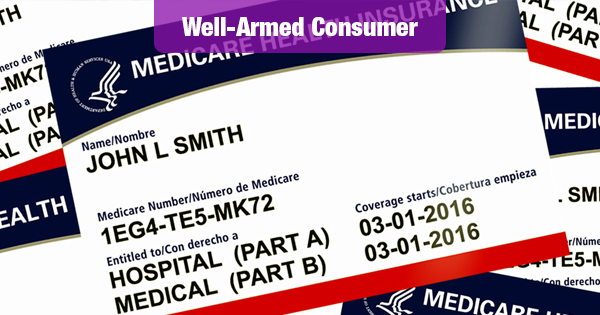
Medicare Beneficiaries at Risk from Card-Replacement Scams, According to AARP Survey
As the federal government undertakes a major initiative to issue new identification cards to the nation's 58 million Medicare beneficiaries, an AARP survey finds that a majority of those enrollees are at risk of being victimized by fraud schemes designed to capitalize on the card replacement program.
In response, AARP has launched an education campaign to raise awareness among consumers about Medicare Card scams.
The year-long effort to mail new ID cards to Medicare recipients began this month. The redesigned cards no longer contain enrollees' Social Security numbers - a move designed to enhance security and help protect against identity theft.
Consumer advocates, including AARP, welcome the development but, ironically, the card replacement program has opened these new opportunities for con artists:
- Scammers reportedly pose as Medicare representatives and contact beneficiaries to demand immediate payment via credit card of a processing fee for the new card. No such fee exists.
- In other cases, the scammers falsely say that Medicare needs to "verify" a recipient's Social Security number or other personal information before issuing the card. Medicare says it does not make such calls and does not initiate uninvited contact.
- Yet another version of the scam tells beneficiaries that they are due a refund on transactions with their old card and asks them to provide bank account information for the processing of the alleged refund.
Results of the AARP survey, which polled Medicare enrollees age 65 and older, indicate a significant number of people could end up as victims of the scams.
"The new Medicare cards are a step forward for fraud prevention, but con artists are working overtime on new ways to scam seniors," said Nancy LeaMond, AARP's Chief Advocacy and Engagement Officer. "That's why AARP, through our Fraud Watch Network, is ramping up efforts to educate Medicare beneficiaries about the new cards and potential scams."
The AARP education campaign includes social media text and video postings, website content, and a cover package in the April edition of the AARP Bulletin.
Local AARP state offices are also distributing a handout that details the new card rollout and associated scams.
AARP is also teaming up with the Federal Trade Commission to present a free webinar on Thursday, April 19, about Medicare cards and fraud schemes. Register for the webinar at: www.aarp.org/FraudWebinar.

